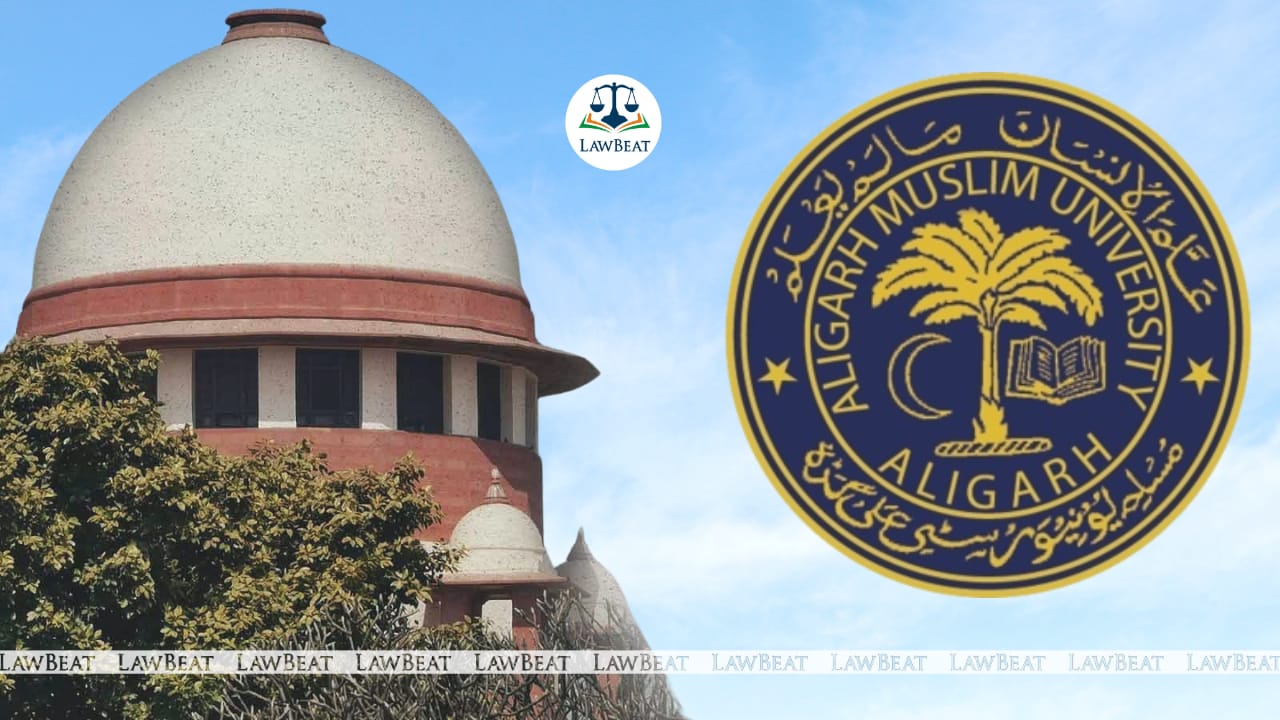SC lays down principles for determining if educational institution has minority status; AMU's claim to be decided by another bench

"An educational institution established by a religious denomination can be regulated on grounds of public order, morality and health. The right guaranteed by Article 30 is NOT ABSOLUTE. Thus regulation of a minority education institution is permissible under Artice 19(6)...", the CJI has observed
The Supreme Court of India today by a 4:3 majority overruled the judgment in S. Azeez Basha vs. Union Of India which held that an institution established by a statute cannot claim minority status.
"The onus to prove that an educational institution was established by the minority is on the claimants. The view taken in AZEEZ BASHA is overruled. The QUESTION WHETHER AMU IS A MINORITY EDUCATIONAL INSTITUTION SHALL BE DECIDED BY THE PRINCIPLES LAID DOWN IN THIS JUDGMENT.", the Chief Justice of India observed today.
Court has accordingly ordered that the present batch of cases shall be placed before a regular bench after receiving instruction from the Chief Justice on the administrative side.
Justices Surya Kant, Dipankar Datta and SC Sharma have dissented by way of separate opinions.
Noting that Article 30 guarantees the minority institutions the right to not be discriminated, the CJI observed, "Article 30 shall stand diluted if is only to apply to institutions established after the commencement of the Constitution. Any law enacted by the imperial legislature which discriminates against linguistic and religious minorities in the establishment and administration of educational institutions would be void.".
Court further in its majority opinion has noted that to determine who established the institution the courts must consider the genesis of the institution. The courts must identify who was the brain behind the administration of the institution, it has said.
On 1st February, a 7-judge bench of the Supreme Court had reserved its verdict in the plea by Aligarh Muslim University (AMU) to decide on the question whether an educational institution created by a parliamentary statute enjoy minority status under Article 30 of the Constitution.
The Constitution Bench of the Supreme Court of India led by Chief Justice of India D Y Chandrachud had begun hearing the matter on January 9, 2024.
Earlier, the Central government had submitted before the Supreme Court that its 2016 decision to withdraw the special leave petition against the Allahabad High Court's 2006 order on minority status of Aligarh Muslim University, was based upon the factual and constitutional considerations alone.
Claiming that the AMU unfortunately tried to give it a political hue, the government has also claimed the previous decision by the UPA government to challenge the HC's order of 2006 was against public interest and contrary to the policy to reservation for the marginalised sections of the society, besides being in the teeth of a five-judge bench decision in the Azeez Basha’s case in 1967.
In his written submission, Solicitor General Tushar Mehta said that the Constitution did not treat Aligarh Muslim University either as minority institution or otherwise.
While hearing the case, top court had questioned the petitioners if an educational institution would lose its minority character after it is converted by a statute into a body corporate.
In 2005, AMU had reserved 50% seats in postgraduate medical courses for Muslim candidates by claiming it to be a minority institution. This came to be set aside by the Allahabad High Court. A year later, in 2006, the then UPA Union government and AMU challenged the High Court's decision before the Supreme Court.
Later, in 2016, the National Democratic Alliance government, withdrew from the appeal contending that it does not acknowledge the minority status of the University.
Case Title: Aligarh Muslim University Through its Registrar Faizan Mustafa vs. Naresh Agarwal and Ors.
